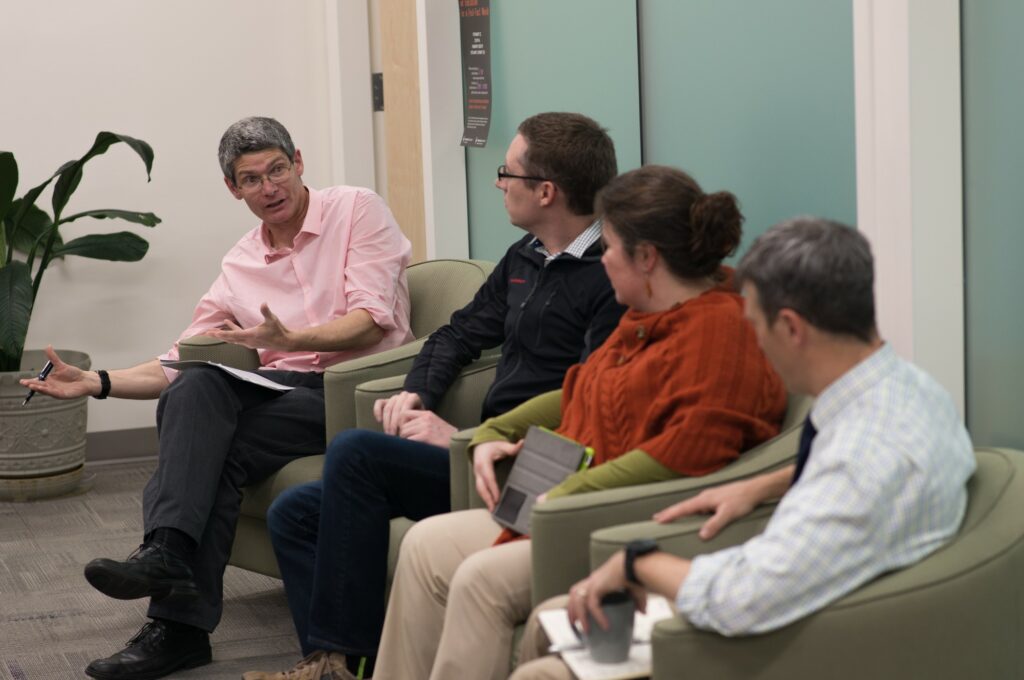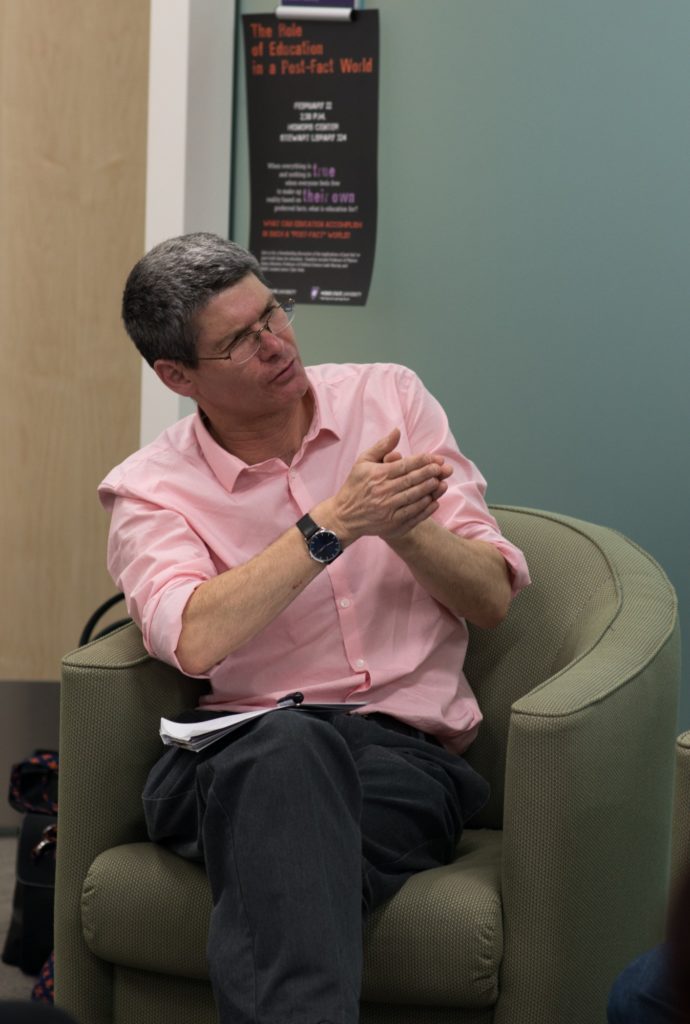
Dan Bedford, Weber State University geography professor and co-author of “Climate Change: Examining the Facts,” detailed the 160-year history of climate change on Feb. 12 as part of the Weber Historical Spring Lecture Series.
Bedford presented data that showed the rapid increase in greenhouse gases preventing heat from escaping Earth, which in turn increases its temperature.
“We need to support a global effort to keep temperatures from rising above two degrees Celsius by the end of the century and continue to support continual innovation in renewable energies, not just dying industries like coal,” Michael Felix, a WSU student said. Felix also said existing energy sources will be replaced once renewable energy is more affordable.
Bedford said the idea of climate change began in the 1800s with Joseph Fourier’s discovery of the Greenhouse Effect.
WSU has started taking steps to become carbon neutral by 2050 and is on track to reduce its greenhouse gas emissions. The school has switched to more energy-efficient light bulbs and installed motion sensors to prevent unnecessary use of power.

Bedford said that change isn’t only the domain of universities and businesses.
“Individual actions can have an impact on the total carbon emissions of the U.S. as a whole,” Bedford said. “Individual actions will not only cut down on the carbon emissions but can also save you money.”
Bedford used the example of well-insulated homes saving on energy usage and costs.
“Although the lecture was not very informative on what can be done to help slow down the carbon rate, it was very interesting to see the history of climate change and the research that has lead us to where we are now,” WSU student Kylie Toponce said. “I just wish more people would take an initiative.”
Bedford shared a few ways citizens can take initiative every day without significant lifestyle changes, including reusable water bottles, carpooling, using less hot water when showering and turning off the lights when leaving a room.
Bedford will be holding a workshop during the Intermountain Sustainability Summit on March 2 with his co-author John Cook and USU’s Rob Davies. They will discuss ways to communicate the realities of climate change and generate a meaningful response without criticism.













